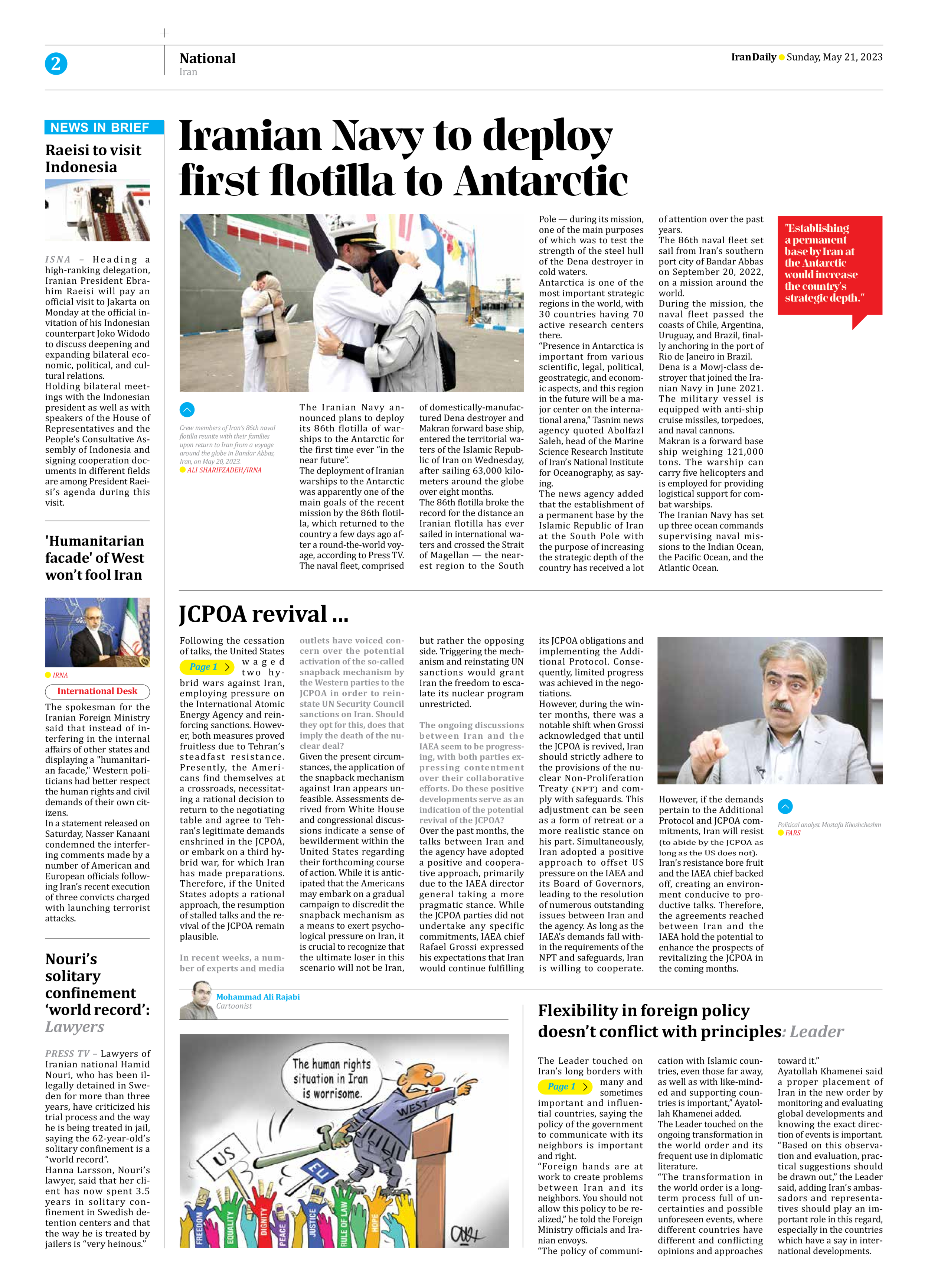
JCPOA revival ...
Page 1
Following the cessation of talks, the United States waged two hybrid wars against Iran, employing pressure on the International Atomic Energy Agency and reinforcing sanctions. However, both measures proved fruitless due to Tehran’s steadfast resistance. Presently, the Americans find themselves at a crossroads, necessitating a rational decision to return to the negotiating table and agree to Tehran’s legitimate demands enshrined in the JCPOA, or embark on a third hybrid war, for which Iran has made preparations. Therefore, if the United States adopts a rational approach, the resumption of stalled talks and the revival of the JCPOA remain plausible.
In recent weeks, a number of experts and media outlets have voiced concern over the potential activation of the so-called snapback mechanism by the Western parties to the JCPOA in order to reinstate UN Security Council sanctions on Iran. Should they opt for this, does that imply the death of the nuclear deal?
Given the present circumstances, the application of the snapback mechanism against Iran appears unfeasible. Assessments derived from White House and congressional discussions indicate a sense of bewilderment within the United States regarding their forthcoming course of action. While it is anticipated that the Americans may embark on a gradual campaign to discredit the snapback mechanism as a means to exert psychological pressure on Iran, it is crucial to recognize that the ultimate loser in this scenario will not be Iran, but rather the opposing side. Triggering the mechanism and reinstating UN sanctions would grant Iran the freedom to escalate its nuclear program unrestricted.
The ongoing discussions between Iran and the IAEA seem to be progressing, with both parties expressing contentment over their collaborative efforts. Do these positive developments serve as an indication of the potential revival of the JCPOA?
Over the past months, the talks between Iran and the agency have adopted a positive and cooperative approach, primarily due to the IAEA director general taking a more pragmatic stance. While the JCPOA parties did not undertake any specific commitments, IAEA chief Rafael Grossi expressed his expectations that Iran would continue fulfilling its JCPOA obligations and implementing the Additional Protocol. Consequently, limited progress was achieved in the negotiations.
However, during the winter months, there was a notable shift when Grossi acknowledged that until the JCPOA is revived, Iran should strictly adhere to the provisions of the nuclear Non-Proliferation Treaty (NPT) and comply with safeguards. This adjustment can be seen as a form of retreat or a more realistic stance on his part. Simultaneously, Iran adopted a positive approach to offset US pressure on the IAEA and its Board of Governors, leading to the resolution of numerous outstanding issues between Iran and the agency. As long as the IAEA’s demands fall within the requirements of the NPT and safeguards, Iran is willing to cooperate. However, if the demands pertain to the Additional Protocol and JCPOA commitments, Iran will resist (to abide by the JCPOA as long as the US does not).
Iran’s resistance bore fruit and the IAEA chief backed off, creating an environment conducive to productive talks. Therefore, the agreements reached between Iran and the IAEA hold the potential to enhance the prospects of revitalizing the JCPOA in the coming months.







